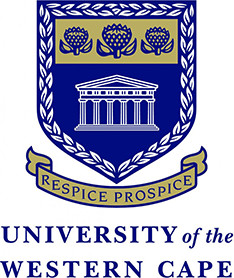This overview of policing in Angola by Julie Berg of the Institute of Criminology at the University of Cape Town is drawn from an overview of policing oversight in select SADC countries.
Angola
This English version of the Constitution of Angola has been directly translated from Portuguese using Google Translate.
The Constitution of Angola 2010 in Portuguese.
 Angolan police target newspaper and 'break up demonstrations'
Angolan police target newspaper and 'break up demonstrations'
On 12 March 2012 Angolan police seized 20 computers from the offices of the publication 'Folha 8' and questioned its editor two days after attempts to stage demonstrations in the Luanda and Benguela were broken up by armed gangs and heavily armed police.
 Cunene court suffers backlogs, poor infrastucture
Cunene court suffers backlogs, poor infrastucture
Poor court infrastructure is contributing to poor performance of the court system in Cunene, says the presiding judge. The Minister of Justice for Courts has promised improvements this year.
"According to the Ministry of Interior and press reports, the 34 prisons had 11,692 available places for 19,898 prisoners in November"..."There were 9,234 men in pretrial detention and 10,113 men serving a sentence. There were 551 women, of whom 253 were in pretrial detention and 298 were sentenced."..."The law states detainees should not be held longer than 24 hours, but many were held for days. Excessively long pretrial detention continued to be a serious problem. An inadequate number of judges and poor communication among authorities contributed to the problem. Police beat and then released detainees rather than prepare a formal court case. In some cases authorities held inmates in the prison system for up to two years before their trials began. NGOs reported that more than 50 percent of inmates were pretrial detainees, most of whom had not been formally charged. The government did not release detainees who had been held beyond the legal time limit, claiming that previous releases of pretrial detainees had resulted in an increase in crime."
 Associação Mãos Livres
Associação Mãos Livres
Associação Mãos Livres has been providing free legal aid to poor people since 2000, including those held in detention. It is the first organization in Angola that dares to call itself a "human rights organization", and is the first Angolan NGO to provide free legal aid.
2012 Report
 Mãos Livres prepares for Angola's first pre-trial audit
Mãos Livres prepares for Angola's first pre-trial audit
In mid-November 2013 members of the Angolan NGO Mãos Livres carried out detailed discussion and training on how best to conduct a pre-trial audit in Angola.
No Sábado dia 20 de Junho, os Serviços de Investigação Criminal (SIC) e a Polícia Nacional prenderam e encarceraram treze jovens activistas políticos e defensores de direitos humanos, numa residência onde discutiam questões políticas relacionadas com o estado da democracia em Angola. Depois de serem presos cada um deles foi levado para a sua residência algemados e a polícia fez buscas e confiscou equipamento informático e documentos, nomeadamente; computadores, máquinas fotográficas, agendas pessoais, revistas, documentos vários e cartões de recarga telefónica que encontraram. Muitos destes equipamentos e documentos são pertença de membros da família. A operação policial aconteceu sem qualquer “mandado de prisão ou de busca” e muitas vezes a polícia armada usou violência para entrar nas residências.

